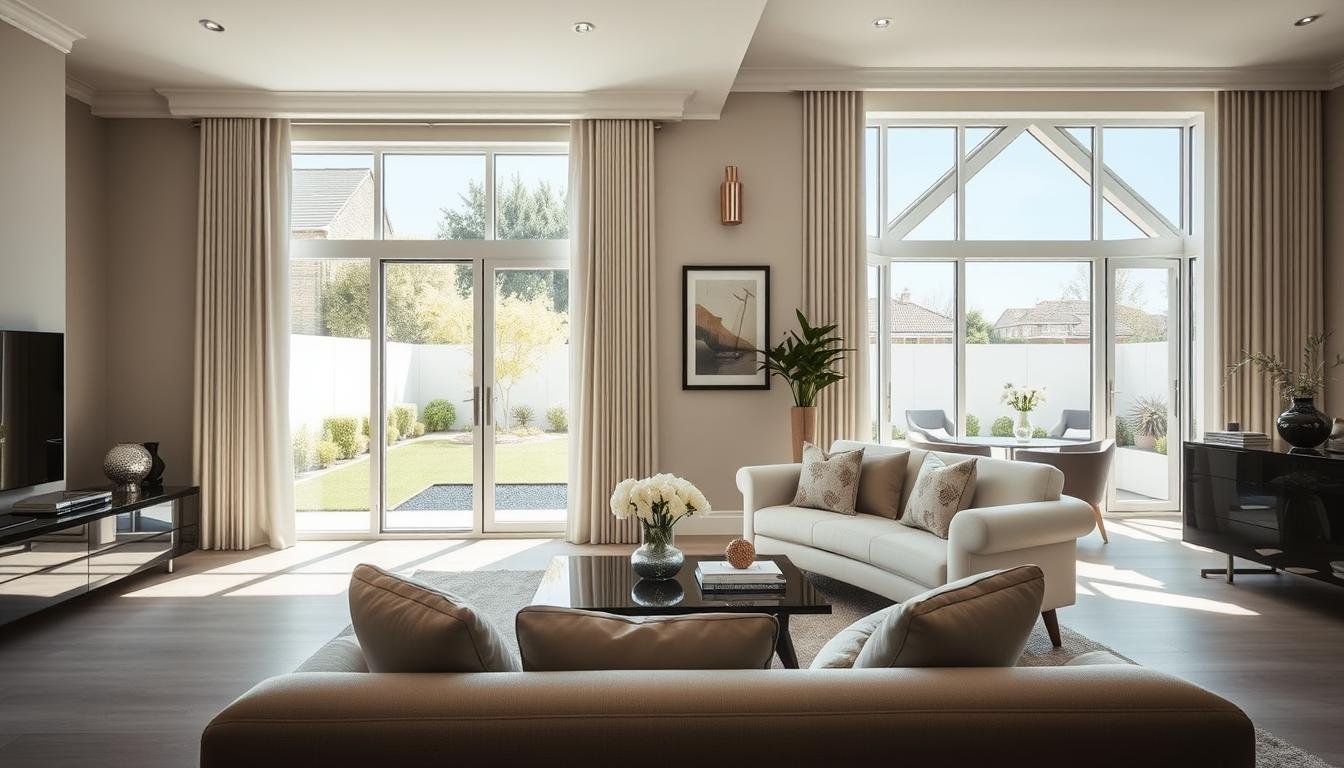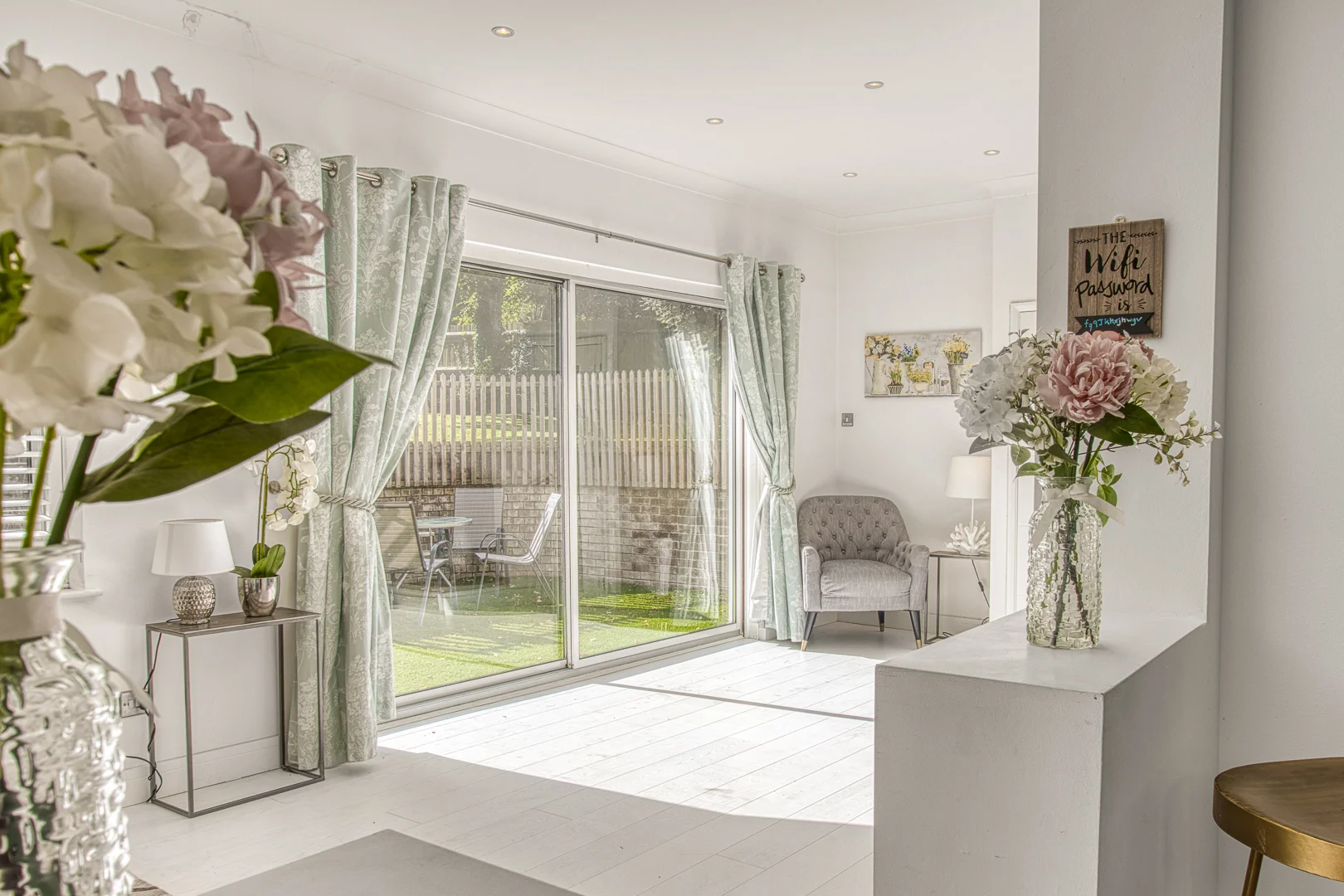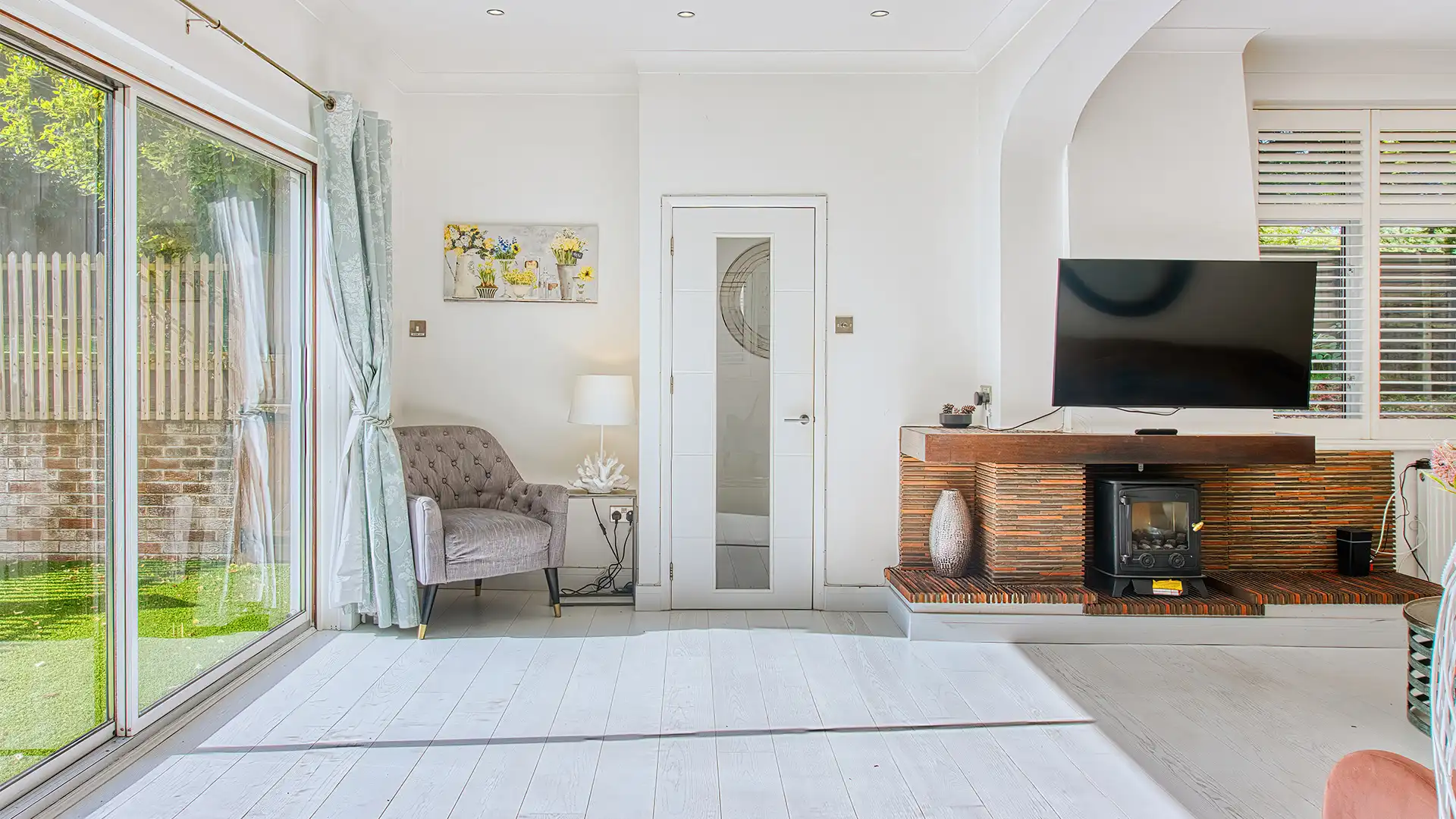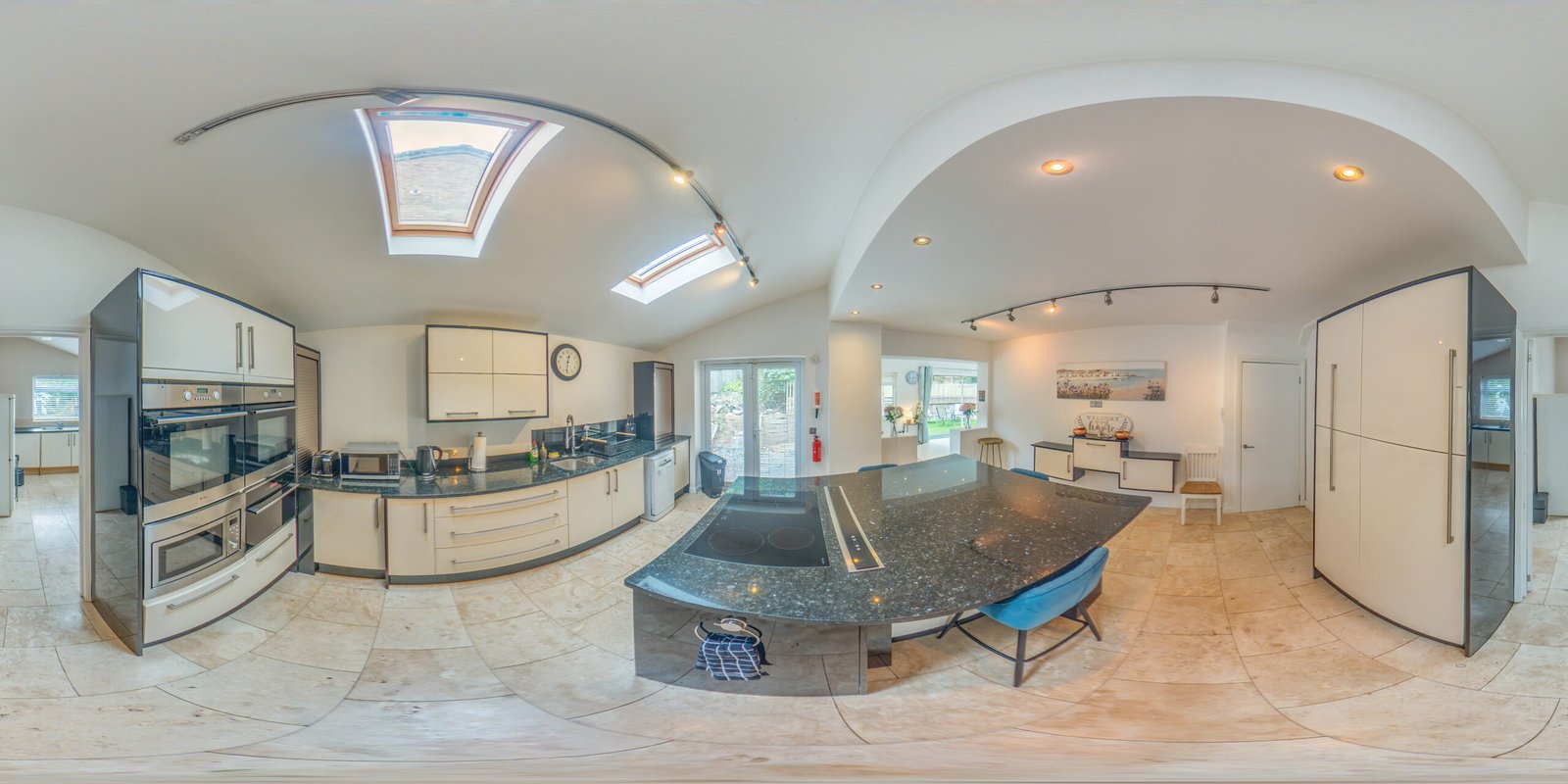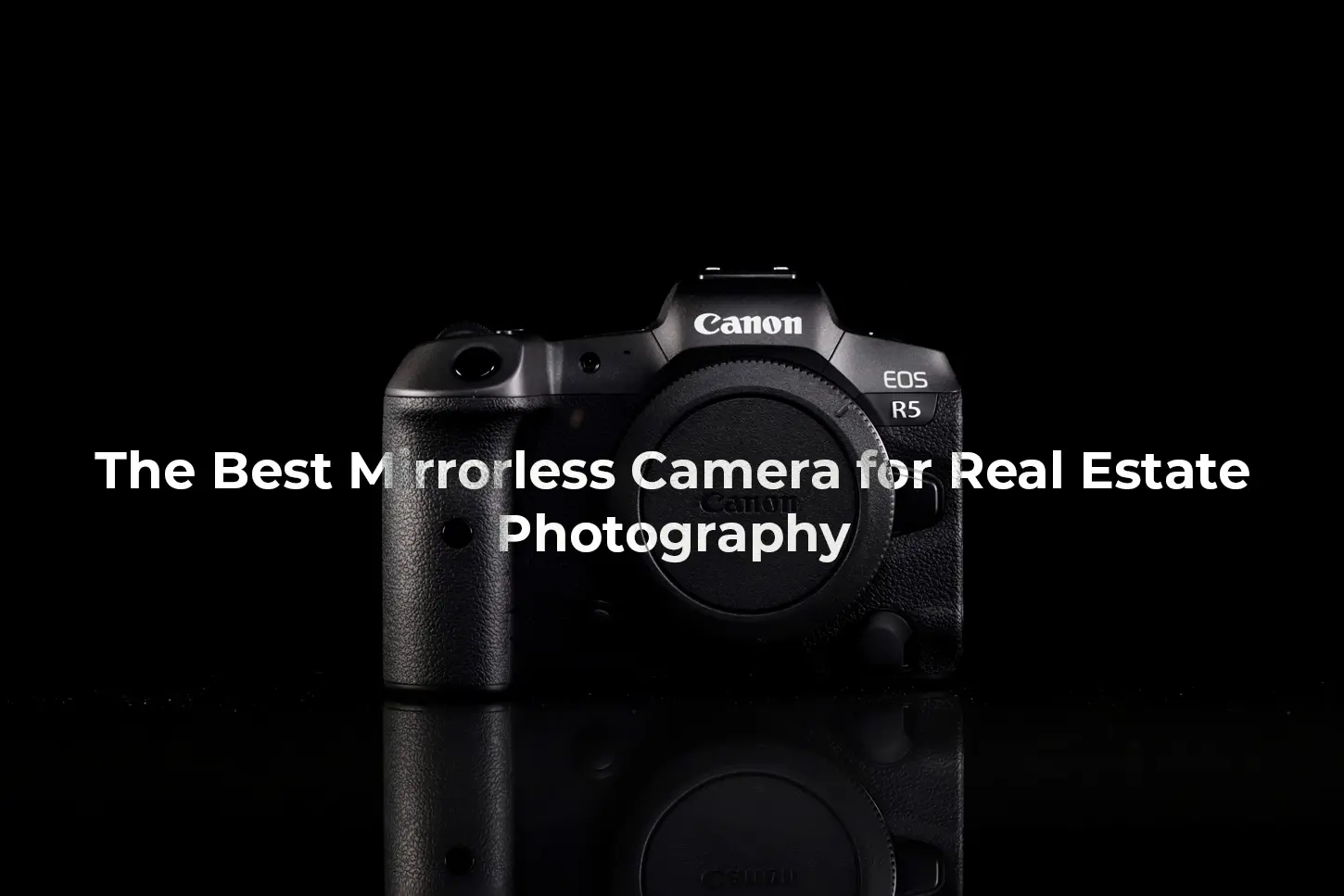Are you a real estate agent or photographer in Leytonstone? Do you find it hard to take pictures that grab buyers’ attention? High-quality digital photos have raised the bar for marketing homes. But, which is better for your property photos – HDR or Flambient?
HDR and Flambient are top choices for real estate and interior photographers1. They each have their own benefits. But, which one is best for showing off your Leytonstone homes and making them pop?
Key Takeaways
- HDR is the most common method used in real estate and beginner interior photography1
- Tonemapped HDR and exposure blending are popular techniques in real estate photography1
- Flambient photography blends flash and ambient light for a natural yet enhanced effect
- The choice between HDR and Flambient depends on project requirements and personal preference
- High-quality images are crucial for real estate marketing in Leytonstone
Understanding Property Photography Fundamentals in Leytonstone
In Leytonstone’s fast real estate market, great marketing is key to grab buyers’ attention. As a Leytonstone property photographer, knowing the basics of property photography is vital. This means getting good at different photo styles, like HDR and Flambient, to show off properties clearly.
The Importance of Quality Images in Real Estate Marketing
Good property photos can really draw in buyers. They might even lead to more viewings and sales. In Leytonstone, where the market moves fast, photos that stand out can make a big difference2.
Local Market Demands and Photography Standards
The Leytonstone real estate market wants top-notch photos that highlight properties well. Buyers here have high hopes, and photographers must keep up. Not meeting these standards can mean missing out on sales3.
Common Challenges in Property Photography
Photographers in Leytonstone face many hurdles. They must handle different lighting, manage dynamic range, and capture both inside and outside details well. To succeed, they need to know their photography skills inside out3.
By getting the hang of property photography, Leytonstone’s photographers can create stunning images. These images can grab buyers’ interest and help in successful marketing. Knowing the basics is key to making photos that impress the local market.
HDR Photography: Technical Overview and Applications
HDR (High Dynamic Range) photography lets you capture light and shadow fully. It combines multiple exposures to show details in both bright and dark areas. This makes images more like what our eyes see4.
How HDR Captures Dynamic Range
HDR photography captures more than a single photo can. It takes several shots at different exposures, usually three to seven frames4. Then, special software blends these images. This creates a photo with amazing detail and color range.
Equipment Requirements for HDR
Post-Processing Workflow for HDR
HDR is great for interior shots, where bright and dark areas are hard to capture in one photo. It ensures every detail, from architecture to colors, is shown well in your images.
| Shooting Technique | Advantages | Disadvantages |
|---|---|---|
| HDR Photography |
|
|
| Flambient Photography |
|
|
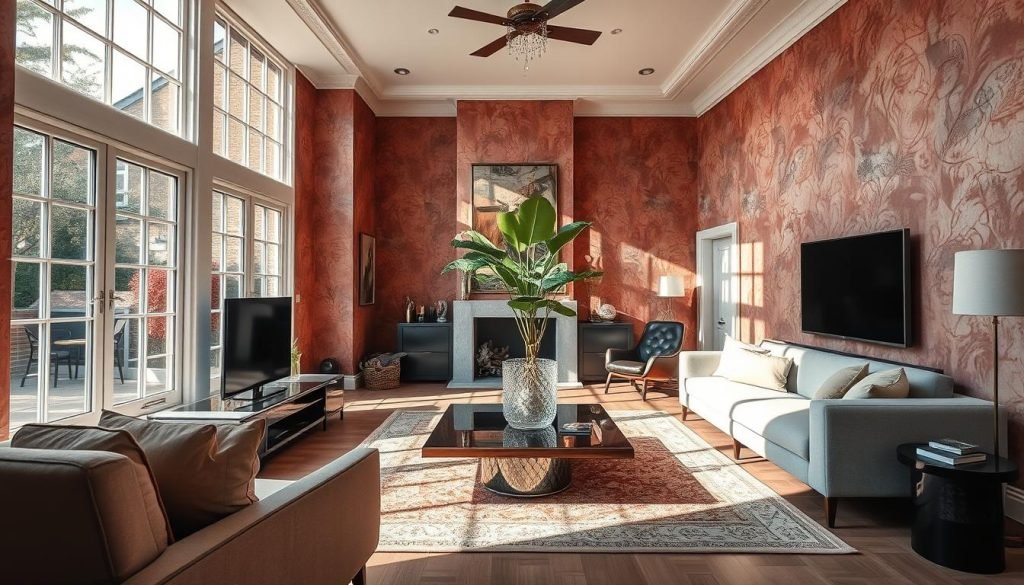
“HDR photography allows me to capture the true essence of a space, revealing details that would otherwise be lost in a single exposure. It’s a powerful tool in my real estate photography toolkit.”
– Jane Doe, Leytonstone-based Real Estate Photographer4
Flambient Technique: Merging Flash and Ambient Light
The flambient photography technique is great for real estate photographers in Leytonstone. It mixes flash and ambient light for stunning shots. This method takes 3-5 photos to make one final image5.
While HDR and single-flash have their perks, flambient is the best mix5. Your images will have great contrast and colour. They’ll look natural yet enhanced, attracting buyers.
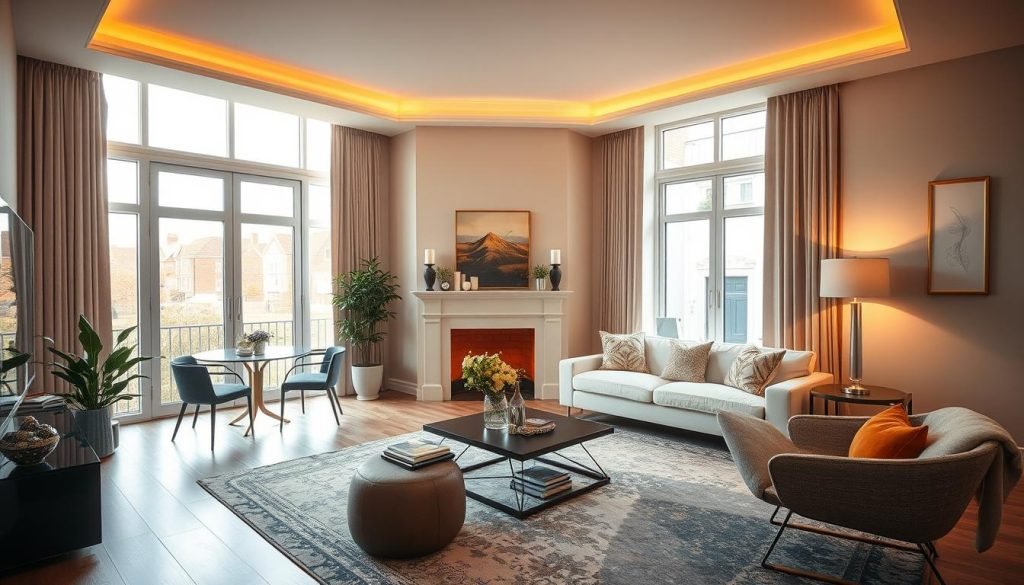
Learning flambient photography can boost your marketing in Leytonstone. It makes your images stand out. Whether it’s interiors or exteriors, this technique can highlight your property’s best features.
HDR or Flambient? How to Decide for Your Next Real Estate Photography Project
In Leytonstone, choosing between HDR and Flambient for real estate photos matters a lot. It affects the quality, how you work, and the cost. Knowing the differences between these methods is key to giving your clients the best photos.
Comparing Time Investment and Workflow
Which method to use depends on the property, how fast you work, and what your clients want.
Cost Analysis: Equipment and Software
Think about your budget and what you need for the future. This helps choose the best option for your business.
Quality and Style Considerations
Knowing what each method does best helps you pick the right one for your clients.
FAQ
What are HDR and Flambient photography techniques?
Why are high-quality images crucial for real estate marketing?
What are the common challenges in property photography in Leytonstone?
How does HDR photography work?
What are the benefits of Flambient photography?
How do I choose between HDR and Flambient for my real estate photography project?
Source Links
- https://fstoppers.com/strobe-light/hdr-vs-flash-interiors-and-real-estate-photography-3135
- https://craigfilm.com/blog/hdr-vs-flambient-real-estate-photography
- https://regensburgerphotography.com/hdr-vs-flash-ambient-blend-in-real-estate-photography/
- https://petapixel.com/how-to-shoot-real-estate-photos-with-hdr-and-flash/
- https://blog.aryeo.com/lighting-for-real-estate-photography/
- https://picturestoryteller.com/2021/08/25/shooting-flambient-real-estate-shots/
- https://photographylife.com/real-estate-photography-tips
- https://www.photoup.net/learn/what-makes-good-real-estate-photography

